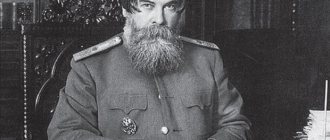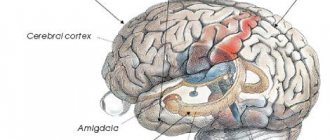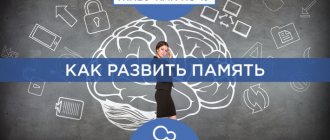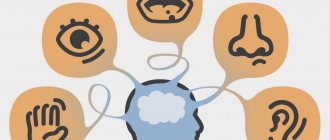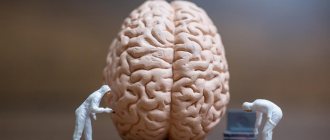It all started eight years ago. One day I woke up with a throbbing and stabbing pain in my eye, so severe that I could not open it. I tried to open my eyelids with my fingers, but it got worse: the pain intensified sharply in a split second, my eye filled with tears, and it became impossible to keep it open. Then I somehow managed to dial my boss’s phone number, told him what was happening to me, and warned me that I would be late. Then I lay down, tried to sleep, and after a couple of hours everything went away. But this was just the first attack, and soon the pain became regular.
The attacks occurred both at night and during the day. Sometimes several times in a row. And when it was all over, I was afraid to go to bed: what if it all started again? It was as if there was cloudy glass on the eye itself.
I returned to my hometown of Neman to see my mother, and we began to contact all kinds of doctors. I was given various terrible diagnoses (for example, eye mites), but tests did not confirm them, and treatment did not work. I lived on strong painkillers, which I took in doses exceeding the permissible ones - they relieved the pain to some extent, but did not solve the problem globally.
At the same time, we began to look for other ways to help me - on the Internet, in books. At some point, I came across the technique of Jose Silva, an American psychologist and self-development guru. This is a series of meditation and breathing exercises aimed at relaxation: physical and emotional. I bought an online course on the Silva method, started practicing, and little by little I felt better - the frequency of attacks decreased. It was very inspiring. I thought that there were probably other ways to alleviate my condition. But I had to search in fits and starts, in those moments when the pain subsided and I could read with at least one eye. So I decided to enroll in an online speed reading course. It seemed that this was what I needed: having learned, I would be able to master more books and articles, my brain would perceive information faster, and I would be more likely to find something that would help me cope with the disease. But then I only saw well a couple of days a week and, naturally, I did not complete the speed reading course.
How I started training my memory
On the site where I was doing speed reading, I found another course - for memory training. I caught fire: “This is it! If I pass it, I'll become like Sherlock Holmes! Or as a super agent! At first, this whole idea was a way for me to distract myself from my illness.
I bought the cheapest package and saw results after the first lesson. Before the lesson, we were all tested: they listed 20 words and asked us to repeat them in the same order. I managed to name, it seems, three words. Then we were told about one of the simple techniques for memorizing - they are all called “mnemonics” - “chain”, or “story”. The idea is that you represent words as visual images and make connections between them. For example, you need to remember a shopping list: bananas, an umbrella, a toy elephant as a gift, cucumbers, milk. You imagine taking a cart and loading it with bananas. An elephant crawls out of the bananas and takes an umbrella from the shelf with its trunk. It opens and cucumbers fall on it, milk begins to flow from the cucumbers. Yes, the story is strange, but with its help you perfectly remembered all the items you needed in the right sequence. Within a couple of hours I took the starting test again, was able to name all 20 words in the correct order and felt a little like a genius, which was very nice.
During the course we were given other basic mnemonics. With their help, we trained to remember people's names, foreign words, and the sequence of pictures. This time I completed my studies: it also helped that most of the exercises could be done with my eyes closed.
But I still had many questions: I wanted to deepen my knowledge about mnemonics. I signed up for another course, then the next one, consulted with memory development coaches, asked them a bunch of questions, re-read everything I could find about memory. No book or teacher gave me all the answers, but because everyone explained things a little differently, my understanding of how to train my memory became deeper.
Learning speed reading is absolutely not a pain
Teaching speed reading techniques is based on a serious scientific basis. It was developed with the participation of psycholinguist V. Leontyev and psychologist L. Grimaki.
This truly effective technique, where science and methodology is involved, significantly improves the principle of speed reading and memory development.
Experts say that there are five shortcomings in the traditional reading method that prevent people from mastering speed reading, and memory development is significantly reduced:
- How to develop memory and attention if users of the traditional reading method often use backward eye movement (regression) to re-read text that is not entirely clear? How can memory and attention develop in such a rhythm?
- Lack of a flexible reading program, when texts are read equally slowly, even if some of them require quick reading.
- The main obstacle to fast reading is articulation, that is, the sound of the text while a person reads it to himself. Many people mentally recite the text while they read. This defect takes up too much of the reader's time. This is the most difficult defect to correct, but thanks to the speed reading program, it is corrected over time.
- The fourth disadvantage is that people have a small field of view when reading. This is the area that is perceived by the eyes at the fixation (stop) stage.
- Lack of attention, which is a catalyst for the reading process. Without attention there is no fast reading. That’s why memory development and speed reading are so interconnected. After all, memory cannot exist without attention either.
How my life began to change
I noticed this strange pattern almost immediately: memory training had the same effect on me as the Silva exercises. The more I practiced, the better I became. I distracted myself from my incomprehensible illness: I drew some pictures in my head, performed some strange exercises - and the attacks of pain happened a little less often. This, of course, greatly motivated (I think it still motivates) to train regularly and intensely. The idea that quick memorization skills could somehow help in life did not immediately occur to me.
At first, after about a year of regular training, I wanted to share my knowledge. Then I went to the school I graduated from and suggested organizing memory training classes during the winter holidays. And somehow miraculously I was allowed to do this. I called that course ambitiously - “I am a genius.” The students were students in grades 10–11. I conducted the classes completely ineptly - I had no experience speaking even in front of a small audience. Everything didn't go according to plan in the end. But the feeling from the process itself was amazing. As I found out later, my students liked it too. One girl, in an interview with a local newspaper, said that she uses memory techniques in her studies and her grades have improved. Another boy wrote me a message saying thank you for the course - he now remembers complex terms faster. So I realized that I need to continue doing this.
The fact that I started teaching others memorization techniques, by the way, turned out to be very useful: by preparing to tell how this or that mnemonic technique works, I myself began to understand it better. Literally as in that joke: “While I was explaining, I understood everything.” But I launched a full-fledged online course, which I am satisfied with, only a year ago.
Almost immediately after I organized a course for schoolchildren, I was suddenly invited to appear on television to demonstrate my memorization skills in the “Amazing People” program on the Rossiya channel. I prepared for the performance for several months, I think that’s why it was a great success: I had to remember in which places the 24 pairs of twins were sitting, and then name them. I didn't make a single mistake and I think I became a little famous.
But suddenly self-sabotage began. I began to be afraid to take on difficult memorization tasks in public, because if I made a mistake, people would say, “Oh, you’re not that professional.” Competitions helped me overcome my fears: there are special memory tournaments, even the World Championships are held annually. Of course, I knew about them before, but I always avoided them. I thought: why would I go there to embarrass myself, because the guys who participate there memorize 80 numbers out of 80 in half a minute, and I only 65. The book “Flexible Consciousness” by psychologist Carol Dweck helped me make up my mind. It says that a person can have a fixed mindset or a growth mindset. A fixed mindset is when you believe that you have a talent for something, that your abilities are given from birth. A growth mindset is when you believe that everything can be trained, that any skill can be learned and developed. People who become dominated by a fixed mindset avoid everything new. But I decided that I needed to regain my growth mindset: if I train more, I’ll get good results. At the first competition, he reached the semi-finals and was eliminated: the participants had to remember the sequence of several dozen words and then name them one by one. The first word was “comforter”, I said “comforter”. It was very disappointing. But this public failure, I think, was what I needed at that moment. He showed me that making mistakes is okay. Yes, I lost, but no one thought any less of me. And if I work on myself, I will perform better next time. So I began to participate in competitions regularly - and still do this to stay in shape. In 2021, he even won the international tournament InChamp2019 in the “Memory” category.
Games
There are many games for children, teenagers, adults and even seniors that help train this cognitive process.
A game for developing auditory memory. Your partner must read a couple of words, and you must remember them:
- bun - flour;
- sister brother;
- sweater - thread;
- father - son;
- carriage - rails.
Then the playing partner says the first word, and you say the second.
A game to develop visual memory. A person is given the task of looking at a series of numbers and remembering them in the correct order in 30 seconds. For example: 3, 5, 4, 7, 8 (the row can be continued if desired).
Then the numbers are closed and the following questions follow:
- What number is to the right of 4?
- What number is between 3 and 5?
- What are the two numbers to the left of 7?
- What number will you get when you add the first three digits?
A game to develop associative memory. A very useful game. Associations are one of the most effective ways to memorize information and memory training techniques. Suitable for children who can write and adults.
You need to come up with definitions for the words, describing the specified nouns in detail with adjectives. The original words are not written down, but dictated. Definitions should not be repeated:
- doll - …;
- screwdriver - ...;
- river - ...;
- Mother - …;
- tree - …;
- sky - …;
- letter - …;
- soup - …;
- envelope - …;
- toy - …;
- computer - …;
- Instagram -...;
- house - ... and others.
And after the list of definitions, the person needs to say the original words for each of them.
A game for memorization speed and development of mental abilities. Someone in the company is asked to name 5 objects or names in the allotted time. For example, the names of girls: Yana, Olya, Yulia, Sveta, Lena. This is the first stage. Then we complicate it. You need to name 5 objects of a given shape or color. For example, round objects: the sun, a ball, a flying saucer, just a plate, a New Year's toy.
You need to repeat the first chain (with names) and name your own, for example, square-shaped objects. The next player needs to repeat the chain with round objects and come up with his own. And so on.
How exactly should you train your memory?
To remember better, you need to train the mechanisms of information encoding, storage and recall. What do I need to do? Remember information consciously. This is what all mnemonics work for. All of them first help to present information in the form of some understandable images - to encode it. And then - connect these images with each other or mentally link them to some object or space in order to quickly remember.
Information can be encoded through associations. For example, if you want to remember that the answer to a question is “no,” you can encode it as an image of a stop sign. If there are no associations, then syllabic coding can be used. It is best suited for learning foreign words. Let's take the Italian word macchina [makina] - car. I start closing it letter by letter from the end until the remaining syllables begin to remind me of some word in Russian. For example, macchina doesn’t resemble anything, macchin doesn’t either. macchi - oh, these are flowers, poppies! Then I form an image in my head - a picture that poppies are sticking out of the car. And that’s how I remember this word.
My favorite memory technique is the “memory palace.” You need to reproduce in your head some room that is familiar to you (this is the “memory palace”), and present the information that you want to remember in the form of pictures that you associate with it. And then mentally place these pictures in the room. I'll explain with an example. Let's say you want to remember the first of Stephen Covey's Seven Habits of Highly Effective People: "Be Proactive." That is, do not react to external stimuli automatically, but do it consciously. Imagine you are reading a book, and at that moment you receive a message in the messenger. Instead of automatically reaching for your phone, you tell yourself, “Stop! Now I’ll decide what I’ll do: I’ll continue reading the book or I’ll be distracted by the message.” So, I associate this skill with the “Stop” sign. I imagine it and mentally install it on some object in my room. For example, on the bed - it’s the first thing I see when I walk in. All. This is how a connection is formed: when I need to remember the first skill from Covey’s book, I will mentally go into my room, look at the bed, and the brain itself will remind me that there is a “Stop” sign on it, which means “Be proactive.” .
There are other mnemonics, you've probably heard about them. For example, mnemonic phrases, poems known to everyone from childhood or expressions for memorization. “Every hunter wants to know where the pheasant sits” or “a bisector is a rat that runs around the corners and divides the corner in half.” These are everyday versions of mnemonics; of course, they are not used in competitions. But the “memory palace” and the “chain”, which I talked about earlier, are used by athletes all the time. But they will also come in handy in everyday life.
Definition of memory and its properties
Let's start with the main thing: to know HOW to develop, you need to know WHAT we will develop.
So, memory is a very important process in our lives, in human mental activity, which helps to remember incoming information, store it, then recall and reproduce it.
Read more about this cognitive process in the article about types of human memory. There you will find a lot of useful and interesting things.
Properties of memory: remembering, storing, reproducing information.
Memorization itself is a matter of neural connections in the cerebral cortex, which can be created, disintegrated, faded, and formed again. It helps a person navigate space, be aware of himself, work and communicate with people.
Why master mnemonics
In business, especially if you are in sales, it is useful to remember the first and last names, birthdays of current or potential clients and partners. In everyday life, a trained memory will protect you from stress. So you went to the store, came back, and it turned out that you forgot to buy eggs. This could have been avoided by learning the entire shopping list using a chain. But not only that: by pumping up your memory, you can learn new things faster.
In my case, mnemonics also turned out to be a powerful tool for self-development. Previously, I hated studying: I graduated from school, barely spent a year at the university, and then went to work. Now everything is different. I really like learning something new, understanding something. I think this is because I learned through mnemonics that it can be done not only through tedious cramming, but also in a much more fun way. It even seems to me that my brain began to work differently. Now he gets a thrill from being used properly.
In general, I think that memory training is very beneficial for the brain - it keeps it in good functional condition. My hypothesis is confirmed by the research of mnemonic technician and neuropsychologist Boris Nikolai Conrad, which he describes in his book “How to Remember Everything.” We took two groups: mnemonic athletes (these are those who regularly participate in memory competitions) and a control group - people who have never trained their memory. Both had their brains scanned. It was found that athletes have a better developed neural network, in particular, connections between the frontal lobes and the hippocampus. This was the first part of the experiment. In the second, the control group was trained in mnemonics and memory training for six weeks. After which their brains were scanned again - it turned out that even in such a short period, their neural network became more dense.
As for the illness, I gradually began to feel better because I learned to control my condition. The pain has become less frequent - about twice a month - and only happens at night. But I'm already used to it. I was not given a final diagnosis, although progress was made last year. I talked to an intern who, unlike experienced doctors, actually listened to all my complaints, and he gave advice: “Check your nose. Maybe it’s not the eyes.” Examinations showed that, most likely, the cause of the pain is that the nasolacrimal ducts are clogged, which causes erosion of the cornea. Now I will dig in this direction.
In the early stages of dementia, the following factors are important:
For a person with dementia, it is important to create a quiet, homely, familiar atmosphere. Moreover, the circle of people with whom he communicates must be constant. This will eliminate feelings of anxiety, nervousness, confusion and excitement. It’s a good idea to create a daily routine and stick to it strictly.
Lyudmila Zhilevich: “Unfamiliar faces, new situations that a person is no longer able to remember, can provoke an acceleration of the development of the disease, and also negatively affect his condition.”
The first symptoms of dementia are not a reason to give up exercise. This could be walking in your favorite places, simple work in the garden, physical therapy exercises (at least 150 minutes of anaerobic exercise weekly).
Life should be full of various events and types of intellectual activity. You can read, solve crosswords and scanwords, play chess or checkers, discuss past cultural or political events.
It is important for the patient to have a hobby, but it should not only be a source of positive emotions and bring pleasure, but also stimulate cognitive and mental abilities.
A sick person's diet should contain foods that lower cholesterol levels. For example, barley, legumes, blueberries. Instead of butter, it is better to give preference to vegetable oil. The menu can include fermented milk products, lean meats and poultry, lean fish, seafood, and sauerkraut. To improve the taste of dishes, the use of seasonings (sage, cinnamon, turmeric, saffron) is allowed. But it is better to reduce salt consumption to a minimum. You should definitely drink the daily amount of clean water (at the rate of 30 ml per 1 kg of weight). It is better to cook by steaming, you can bake or boil.
If you follow all the doctor’s recommendations, you can slow down the progression of the disease, which means significantly improving the patient’s quality of life and delaying severe manifestations of dementia. At the same time, people who have a hereditary predisposition to developing the disease should pay special attention to prevention: lead a healthy lifestyle, do exercises daily for mental exercise, and control blood cholesterol levels.
An important point is to create comfortable conditions so that a person suffering from dementia remains independent for as long as possible. The best therapy is to spend more time with elderly relatives, surround them with love, care, and help them feel useful and needed, the specialist added.
How to master mnemonics
- Don’t start mastering mnemonics alone - using articles on the Internet.
Not all the exercises given there are useful and effective. It’s better to buy a good book, and ideally, choose a memory training specialist who seems adequate to you, and sign up for a course with him. This way, most likely, you will move faster: you will have the opportunity to ask the teacher any questions, he will check whether you understand the mechanics of mnemonics correctly and whether you are moving in the right direction. - Focus.
Developing memory is not an end in itself; we always learn to remember for something. Understand why you need it. There are specialized courses on memory development for solving narrow problems, say, to learn a foreign language. With their help, you will learn what you need faster, since you will not be given unnecessary information. - Don't be discouraged when learning slows down after your initial successes.
This will definitely happen. All courses are structured in such a way that you will first master the easiest tools - and you will be able to do everything right away. But then you will inevitably get to the difficult ones. You need to endure this moment - and then you will definitely enjoy how quickly and accurately everything works out. - If you want to learn something, study regularly.
To do this, develop a habit: train your memory every day, for starters, at least five minutes a day (better, of course, more). This way, you will get used to regularly freeing up time for classes - and if something changes in your life, for example, you start working more, this will not be the reason why you stop classes and quit an already paid course in the middle.
Facilities
If intellectual puzzles and logical problems do not help, then a specialist should deal with it.
Medications
If there are serious problems with memory and the doctor has diagnosed this, he may suggest solving them with pills. There are a number of drugs that improve cerebral circulation and promote the development of thinking and memory. The most famous: Noopept, Nootropil, Glycine, Phenibut, Piracetam, Tenoten and other nootropics, adaptogens, antioxidants, antidepressants.
Sometimes they can prescribe individual vitamins that help improve and develop memory: C, D, E, almost the entire group B. They are also collected in multivitamin complexes designed specifically for the brain.
Adults can take a course of dietary supplements, but no one can guarantee their effectiveness. Although good drugs for the development of cognitive processes are produced by Doppelherz (Germany), Evalar (Russia), Solgar (USA).
Folk remedies
The same goes for folk remedies. They don't develop memory. But by activating cerebral circulation, normalizing blood pressure and improving overall well-being, they help adults begin to remember and reproduce much larger volumes of information faster and better (without errors ) . Infusions and decoctions of meadow clover flowers, motherwort leaves, wormwood, elecampane roots, red rowan bark, and rose hips have such properties.
However, you should be extremely careful with folk remedies, since in the presence of chronic diseases they can cause their exacerbation or side effects.
How to improve memory without mnemonics
- Learn to manage your attention.
Many people often cannot remember whether they turned off the iron or gas when they left home. And doubts about this torment them all day long. But the problem in this case is not memory, but attention. There's a simple way to stay focused even during these habitual activities: count to yourself to five whenever you do something you want to remember. Counting will allow you to concentrate on the current moment, to notice what is happening to you now. When you need to remember this moment, it will instantly pop up. - Go into anything with the idea that at the end of the day you will need to tell someone about it.
How to do it? Just like when you read a book, preparing to retell it. In such cases, you approach the process differently than usual: you note some main points for yourself, dwell on the details, try to remember names. The same can be done with what happens to you in life: during the day, you concentrate a little more on what is happening to you and what you are doing, trying to highlight and remember key events. And then in the evening, you briefly talk about them (you don’t need to remember all 24 hours), for example, to your mother, wife, husband or cat. Give it at least a week, your brain will get used to it, and you will notice that you begin to remember more details. - Get enough sleep.
The pattern is simple: if you do not get enough sleep, your intellectual abilities, including memory, sharply decrease. The fact is that memory consolidation occurs during sleep. The brain sorts out everything that it saw, heard and learned during the day. It deletes some things and transfers others to long-term memory. This is how our database is formed, on the basis of which we will then make decisions. The better and more extensive it is, the better. Therefore, sleep cannot be neglected.
Techniques
It is important for adults to choose the right method for memory development. If there are specific programs for children (most often gaming), then after school a person is left alone with his problems. Some people prefer to ignore them: they forgot about an appointment - who doesn’t! Some people are hesitant to see a psychotherapist or neurobiologist: it’s embarrassing to admit that you can’t remember your own phone number. Others try to follow in the footsteps of childhood memories and play online simulators for preschoolers and teenagers, since they themselves cannot find anything more worthwhile.
All three situations turn out to be failures. As a result, memory will invariably deteriorate and every year more and more. Therefore, all adults need to know what methods for its development have been created for people who are already over... And in fact there are not so few of them:
- mnemonics;
- neurobics;
- finger gymnastics;
- speech exercises;
- speed reading;
- online simulators;
- test and game tasks;
- ordinary memory development exercises;
- mobile applications.
In addition to these effective techniques, you can use the miracle remedies of traditional medicine and innovative modern technologies. Dietary supplements, vitamin complexes, tablets that improve brain function and strengthen cognitive mental processes, coupled with the above methods, will allow you to remember and reproduce gigabytes of useful information. And, of course, do not forget that all this will have no effect if you do not normalize your lifestyle and monitor your health.
Features of human memory
We all have different abilities to remember. For some it is easier, for others it is more difficult. In addition, we remember different things in different ways. For example, one person may be good at remembering people's names and facial features, but have trouble remembering where he put something in the house. And the other, on the contrary, remembers perfectly where everything is, but does not remember the name of his neighbor. Some people prefer to use auditory and musical memory, others prefer visual memory, and some prefer to remember tactile sensations.
Memory is an ability that has individual characteristics for each person. But there are patterns of memory that are universal for all people. And it is these patterns of memory and methods of its development, as well as techniques and methods of memorization that will be discussed in this course.
Exercise equipment
In our wonderful 21st century, there are many ways to improve yourself. For example, simulators help you quickly, systematically and effectively develop different types of memory at home in just 10–15 minutes a day.
Finding a coin increases the volume of visual and spatial memory, trains concentration.
In this game simulator you need to visit many houses in a densely populated neighborhood. The task is to collect all the coins. At the same time, you cannot go to places where you have already been.
Diamonds – develops volume, improves accuracy and speed of memorization. It also develops attention and improves its properties.
You need to remember the sequence in which the filled cells appear and, after the signal, fill your cells in the same way as in the example.
Letter span – develops volume, improves accuracy and semantic memory.
A set of random letters appears on the screen. Your task is to remember them in the order in which they appeared.
A simple comparison trains verbal-logical, working memory and attention.
You need to compare statements. There may be a catch here, so be careful.
Similar pictures – trains memory for faces, eidetic and non-verbal, and figurative thinking. Improves the ability to quickly memorize and reproduce by ear, and come up with new ideas.
You need to remember the location of objects, then indicate what has changed in the picture. With each level the tasks become more difficult.
Selected recommendations
To increase the effectiveness of your training, follow these recommendations from neuroscientists:
- Explore new horizons.
- Visit as many new places as possible: exhibitions, museums, quests, panoramas.
- Learn and regularly perform one of the breathing exercises.
- Give your brain a good rest for 15 minutes every day. Dim the lights, turn on relaxing music and try not to think about anything.
- Move more. Play sports. Take a walk.
- Try to be outdoors more often. Ventilate the rooms you are in.
- Repeat important information that will be useful to you tomorrow before going to bed.
- Avoid lists (memorize information) and calculators (do calculations in your head).
- Read books, learn languages, memorize poetry.
- Use online trainers: Wikium, Zanimatika, B-trainika, Supermozg, BrainApps.
Is it possible to develop memory
Mnemonics for memory development for adults and children - methods and techniques
Memory is the ability to accumulate, retain and apply knowledge and skills. Every person has it and is a necessary condition for a quality life. To improve the process of memorizing and retaining information, you can develop brain activity. It is amenable to training, which uses various exercises to develop memory.
Note! Certain living conditions help improve the memory process. The main thing is to stimulate brain activity and use techniques to absorb information.
How to develop memory without exercise:
- A person needs full sleep, at least 8 hours per day;
- Give up bad habits and adhere to the principles of proper nutrition. Eating healthy foods rich in vitamins and nutrients promotes the development of attention and memory;
- Physical activity has a beneficial effect on brain activity. A small warm-up is enough, but every day. You can pump up your abs, stand in a plank for a minute, ride a bike.
With desire and some persistence, comfortable conditions for memory development are created.
Preventing memory loss
I will write very simple steps to maintain your mental health. But the decision is yours whether to implement them or not.
Here is a short reminder on the development, prevention and restoration of memory:
- Keep your brain sharp. Participate in programs, courses, do exercises and everything that tones up the main human computer. Close your eyes and make some movements from memory, walk by touch.
- Concentrate. Try to pay attention to little things: signs, shoes of passers-by, hairstyles, etc.
- Repeat out loud. This trains several cognitive processes at once.
- Relax. Find and use methods to relax your brain.
- Eat right. No fatty foods, because fat makes the brain lazy. Use unsaturated fats and acids.
- Go for walks. This enriches the brain cells with oxygen, and the brain begins to work better.
- Ensure normal sleep. On the right pillow, enough time. And if you can’t get enough sleep several times, take a rest day. And remember: lack of sleep accumulates!
Causes of memory loss
Have you promised two employees a meeting at the same time? Or have you already forgotten what you ate this morning? Or maybe you don’t remember at all whether that ill-fated iron was turned off?! Your affairs are getting worse...
Indeed, every person has moments of memory deterioration, and for many this is already a tendency.
Reasons for the deterioration of this cognitive process:
- Nervous exhaustion, stress. The brain is aimed at protecting, not at nourishing mental functions.
- Constant lack of sleep. During sleep, the brain restores the entire body. If there is little sleep, it does not have time to do this, and it itself loses its power.
- Alcohol and drug abuse. Memorization is the first thing that suffers from all mental functions. Chemicals have a negative effect.
- Previous anesthesia, medications.
- Lack of B vitamins. These are important substances for the nervous system. If they are deficient, memory will also suffer.
- Various diseases.
If memorization deteriorates, you should not leave it to chance. We urgently need to work on this!
Principles of remembering information
When memorizing, it is important to understand what is being said. Draw an analogy with already known information, then the new one will become clear and easily assimilated.
Repeating heard material is useful and is considered one of the principles of mastering new information. You need to convey information in your own words, without trying to accurately reproduce what you heard or read. The main thing is to capture the essence and follow the logic. You can say it out loud or tell your friends. These actions help ingrain facts in memory.
Memorization, thought process in action
New knowledge is trying to displace old knowledge. In order not to lose them, you need to periodically return to them to repeat them. It is better to remember information in parts, dividing it into logical blocks, and make a plan. You can come up with associations for each part; they can be associated with an object or emotion. The main thing is that they are bright and familiar. This connection will help you easily reproduce new information.
It is good to apply the acquired knowledge in practice. Using information in life will help you remember for a long time, providing you with life experience.
Books
It’s not for nothing that I wrote about poetry in my advice. They train and increase memory capacity. Books work the same way.
Reading develops memory, because when we read, images arise, we remember the plot, we experience it. Very useful reading. And reading about the development of our mental processes is even more useful.
Therefore, I suggest you take the time to study super books:
- Denis Bukin “Development of memory using the methods of special services”
- Ryuta Kawashima “Train your memory. Japanese system for maintaining brain health”
- Jonathan Hancock “How to train your memory. Don’t think about memory - better use it to the fullest!”
- Stanislav Matveev “Phenomenal memory. Methods for memorizing information”
- Kevin Horsley “Limitless memory. Remember quickly, remember for a long time"
Classification of types of memory
Memory is classified according to different criteria. Let's look at the main ones.
By duration
This is a criterion that determines how long information is retained in the brain. The following types of memory are distinguished:
- Operational . This is a superficial and short-lived memory. It is also called a worker. At this level of memorization, the storage period of information is limited to the period of its use. For example, to understand what a sentence is about, you remember the meaning of the words written in it. Having read the sentence to the end, you will no longer be able to reproduce it verbatim, but convey it in your own words. Just as we ourselves understood. The most interesting thing is that the brain does not even strive to remember this information. However, RAM capacity can be increased through training.
- Sensory . The first step in the process of memorizing information. It belongs to the physiological level, since it remembers signals coming from the senses. Information is stored for no longer than 4 seconds. The most famous types of sensory memory are auditory and visual. Only a small part of the information received through hearing or vision attracts our attention. But when this happens, it already moves from the stage of sensory memory to the level of short-term memory.
- Short-term . The stage of memorization at which the conscious process of information processing begins. At this level, the information that interests us is stored for no longer than 30 seconds. During this time, the brain processes the received data and determines the degree of its importance. Important information is duplicated, and unnecessary information is deleted. Short-term memory can hold no more than seven unrelated elements. To remember such information for a long time, you need to focus on it and repeat it several times. Otherwise it will be replaced by other data.
- Long-term . This type of memory is characterized by a huge volume and almost unlimited storage life. For information to reach this stage, it must be comprehended, analyzed in detail and made associations with existing information. Mere memorization will not help here. But even if you remember the information correctly, it can be difficult to retrieve from long-term memory because it is rarely used.
According to mental processes
Information enters the brain through various channels. Depending on this, the following types of memory are distinguished:
- Figurative . The largest amount of information is stored in us in the form of images received through the senses. Here we distinguish between visual, auditory, tactile, olfactory and taste memory. This type of memory is the first that begins to work in newborns. There are also cases of memorizing information with phenomenal accuracy, down to the smallest details. This type of memory is called photographic memory.
- Motor . It is one of the most ancient ways of remembering information that arose in the process of evolution. Motor memory plays a very important role, and not only in sports. Without it, a child will not be able to learn to walk, run, jump, or draw, and an adult will not even be able to pour himself some tea.
- Emotional . This type of memory is activated when we experience strong feelings and vivid emotions. First love, the birth of a child, the bitterness of resentment, the joy of meeting after a long separation with loved ones, etc. Such information is always associative in nature. Therefore, it is enough for some small detail to appear for us to again plunge into this waterfall of long-experienced emotions. True, they will never achieve that original strength.
- Verbal-logical . This is the youngest type of memory. It is unique to humans because it is conscious in nature. We remember information not as a set of sounds or symbols, but as a meaningful fragment. It is this type of memory that requires targeted training to improve.




